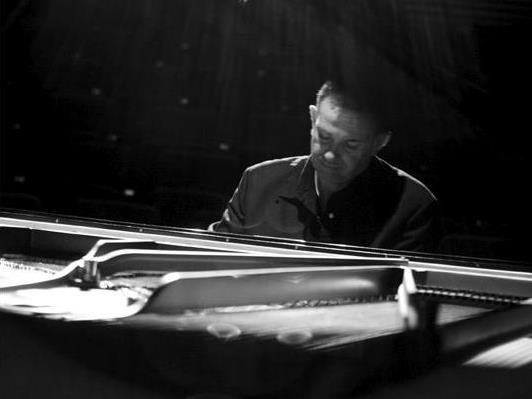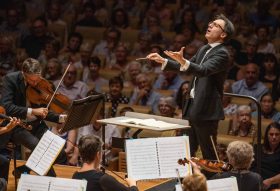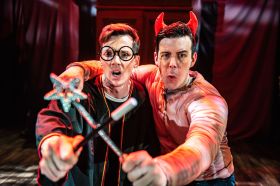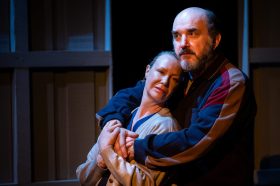David Wickham on piano.
SwanSongs 2017 got off to a good start for the year with this delightful recital by soprano Emma Pearson, accompanied by mentor/entrepreneur/accompanist extraordinaire David Wickham.
Several times in the past I have opined that Wickham is possibly the best accompanist Australia has produced since Henri Penn, so take that as read. There are no more superlatives to call on.
Emma Pearson is also an entertainer at the top of her form. Since 2007, she has been nominated for, and often won, award after award, and she has performed widely in Europe and Asia as well as Australia and New Zealand. Her talent serves her well both as an opera soloist and as a recitalist. She has a lovely stage presence and her choice of gown for this event – a very pretty floral dress in the latest ‘uneven hem’ fashion – was delightful.
Swan Songs tends toward art songs and lieder, and in this recital Pearson demonstrated her versatility in a repertoire that included works by Gustav Mahler, Richard Strauss, Joseph Canteloube and Joaquin Turina, and that was just the first half of the program! The final bracket of the first half drew on the Cabaret Songs of American composer William Bolcom. Not everyone likes jazz scales, and the first item by this composer, Over the Piano, was not an easy piece to perform or to listen to, with its strange tonality and discordant intro. Easier listening, perhaps, was Waitin, reminiscent of Spirituals. The final item, however, Amor, was a happy song and well received by the audience and obviously enjoyed by the performers as well.
Pearson obviously has considerable skill in languages. Several songs were sung in Spanish, others in German or French. Her presentation of songs by Karl Friedrich Henckell was especially impressive. They would be hard to sing in any language, but Pearson gave us an expressive and at times deeply moving rendition. Winterliebe was especially notable, giving us a picture of the stormy side of love. Cantaloube’s Chants d’Auvergne were convincingly delivered in the dialect of the Auvergne.
Another impressive offering was Mahler’s folk-song piece Scheiden und Meiden, not the easiest of pieces to perform. Wickham and Pearson handled the contrasts well, although there was, perhaps, a slight touch of stridence in the difficult final passage.
I must admit my preference for the items from the second half of the program, which included works by Délibes, Mendelssohn and Brahms. The oft-times overlooked work of Clara Schumann was included in the shape of her Waltzer, a charming piece that reinforced Pearson’s obvious love for the triple time signatures, both simple and compound.
Very well received was that old Eisteddfod favourite, Les filles de Cadiz, by Délibes. It’s a very listenable item, perhaps because of the way its focus swings between melody and rhythm.
For her encore, Pearson chose the popular I could have danced all night from My Fair Lady. I rather think she would make an excellent Eliza. She must be one of the most versatile singers this country has produced!
SwanSongs will almost certainly return a couple of times during 2017. I certainly hope so, because it is one of the few daytime events available to Perth audiences. It especially appeals to older patrons because of its easy accessibility by public transport, to say nothing of the excellent entertainment and yummy afternoon teas!
Rating: 4 stars out of 5
SwanSongs 2017
Piano: David Wickham
Saprano: Emma Pearson
Perth Town Hall





